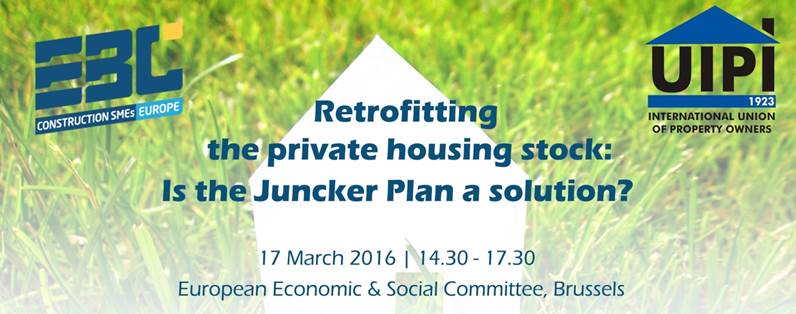Global Polio Eradication Initiative Roundtable. Challenges and Opportunities for Polio Eradication
Date
Section
Event Location
Event Description
Place: European Parliament, Room A5E 2
The Global Polio Eradication Initiative Partners (Rotary International, the Bill and Melinda Gates Foundation, UNICEF and WHO), are organising a roundtable presentation on the challenges and opportunities for polio eradication (2014 - 2018). The discussion is being hosted by MEP Sajjad Karim and MEP Gay Mitchell and will include keynote speeches by Andris Piebalgs - European Commissioner for Development, Dr Hamid Jafari - Director of Polio Operations and Research (WHO), Dr Bob Scott - Chair of PolioPlus Committee (Rotary International).
Due to the recent polio outbreaks in Syria and in Africa, eradicating the remaining 1% of polio cases is more pressing than ever, and Europe has a crucial role to play. Over the last 25 years, polio has been reduced by more than 99%, from 350,000 annual cases to 300 annual cases. More than 2.5 billion children have been immunized all over the world, and more than 10 million people are today walking who would otherwise have been paralysed by the disease. But these recent outbreaks underscore the risk ongoing endemic transmission poses to countries everywhere.
Lack of infrastructure, political instability, and conflict are among the challenges that have led to persistent pockets of transmission in the remaining endemic countries of Nigeria, Pakistan and Afghanistan, which continue to export the poliovirus to polio-free countries. Although Europe has been polio-free for over 10 years, the threat of polio importation and outbreaks remains, as highlighted in the attached published in the journal Nature on 29 October.
Failure to capitalise on the opportunity to eradicate polio could result in an estimated 200,000 cases annually within the next ten years. In contrast, polio eradication efforts have already generated net benefits of $27 billion and the new Polio Eradication and Endgame Strategic Plan – 2013-18 promises to yield up to $25 billion in additional net benefits over the next 20 years. This does not include the incalculable savings in human suffering.
The GPEI estimates the financial requirements for the 2013-2018 period to eradicate all remaining polio disease at US$ 5.5 billion, of which $4.1 billion has been committed. This event will take stock of the GPEI partners’ efforts to address remaining challenges while speakers and participants will have the opportunity to discuss how the EU can contribute to this historic effort and rid the world of this crippling disease for ever.
The roundtable discussion will take place at the European Parliament and will be followed by a networking lunch and a photo exhibition.
Please R.S.V.P to polioevent@apcoworldwide.com
Related Events

WORKSHOP
When: Thurs. 14 January, 10.30
Where: European Parliament press room, PHS building Room 0A50
The European Commission is reviewing European Waste legislation in line with the EU Resource Efficiency objectives.
The Institute for European Studies at the Vrije Universiteit Brussel kindly invites you to a policy forum on 27 February 2014, 12:00-14:00h for the Policy Forum "European energy and industrial policy realigned. What job for public authorities?".
According to the EU Roadmap to a Resource Efficient Europe, each year in the EU we throw away 2.7 billion tonnes of waste.
EUROPEN is celebrating its 20th anniversary event on Wednesday 9 October from 4:00 to 8:30 pm at the Residence Palace in Brussels.
The global financial crisis and, in part, fiscal profligacy have contributed significantly to a sharp rise in government debt levels in Europe. Therefore, tackling excessive public deficits and debts has once again become a priority.
Agriculture faces major challenges to deliver food security at a time of increasing pressures from climate change, social and
economic inequity and instability, and the continuing need to avoid further loss in ecosystem biodiversity. The introduction of
Brief Abstract
The seminar is the closure event of an 18-month project, co-funded by the European Commission, aimed to raise awareness
about opportunities arising from the EU-Canada economic and trade agreement. After an institutional perspective, provided
Privatization of Public Goods
26 June 2013, 15.00-18.30,European Parliament, Room ASP A1G2
PROGRAMME
15.00 – 15.15 Opening
Gabi Zimmer, President GUE/NGL
Thomas Händel, MEP GUE/NGL , (Die Linke, Germany)
The importance of Science in the agricultural sector is vital and the role of communicating this to a wider audience equally so.
Welcome
Rainer Steffens, Head of the Representation of the State NRW to the European Union
Introduction
Sustainable development depends on real commitments and actions, by real people in the real
world – statement from 2002 Johannesburg Earth Summit Declaration. Several voluntary commitments where mentioned at Rio +20 as good practice of industry moving towards improved sustainability.
The Greens/EFA group in the European Parliament invites you to a conference on "How GMO-free labelling of food products can contribute to increase GMO-free supplies for animal feed", co-hosted by MEPs José Bové, Jill Evans and Bart Staes.
HEARING "Priorities of sustainable development of Dnipropetrovsk region (Ukraine) - pilot area of dynamic interregional European cooperation. Energy efficiency, Ecology, Local self-government development"
January 30th, 2013
15:00-18:30
Dear colleagues,
Organised by URBAN Intergroup
Monday 26 November 2012
Mr. Oldřich Vlasák Vice-President of the European Parliament and RICS kindly invite you to this seminar.
You are cordially invited to attend the breakfast briefing that ETNO will be hosting on 16th November at the Renaissance Hotel, Brussels, from 8.30 to 10.00, entitled “The EU Telecoms Sector today & tomorrow.
Securing Europe‘s Raw Material Supply in the Context of Resource Efficiency and EU Industry Policy
There is no energy- and resource efficiency, no climate protection, no future technologies for our modern
world without the use of non-ferrous metals.























